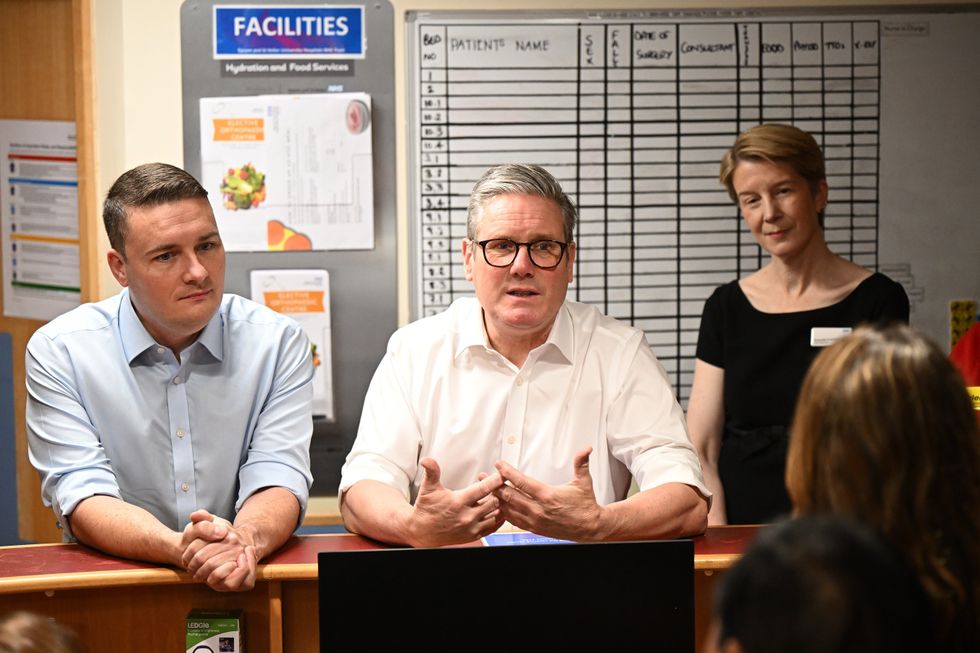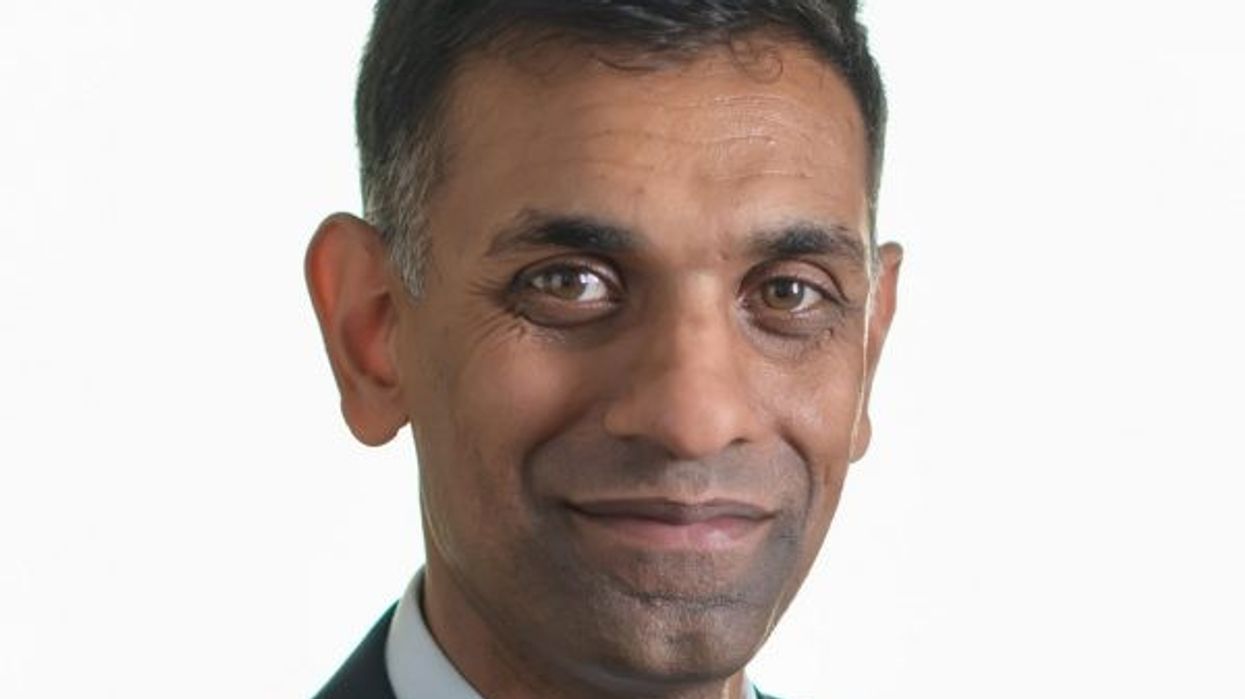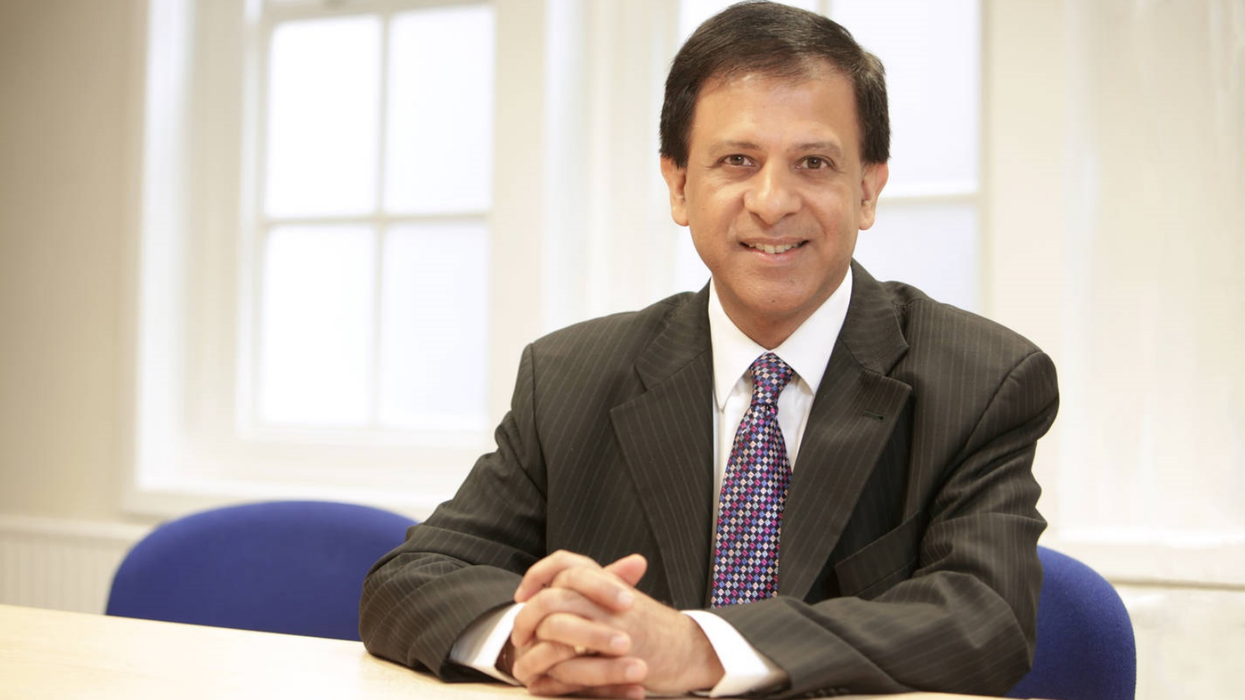A SENIOR Asian doctor has said the reorganisation of the NHS should have a “proper focus on racial equality and not as some sort of optional extra”.
Dr Chaand Nagpaul CBE, former chair of the council of the British Medical Association (BMA), told Eastern Eye the government needs to make sure the decision last week to abolish NHS England “doesn’t harm south Asian healthcare” by getting rid of experts at the administrative body.
Prime minister Sir Keir Starmer announced last Thursday (13) that the government would disband NHS England to “cut bureaucracy” and bring management of the health service “back into democratic control”.
NHS England will be integrated into the Department of Health and Social Care (DHSC). This move aims to eliminate duplication caused by two separate organisations performing similar functions, which officials claim is currently hindering staff from delivering optimal patient care.
In an exclusive interview with Eastern Eye on Monday (17), Nagpaul said, “If the government is abolishing NHS England, my plea would be for them to remember their commitment to race equality.
“The new Department of Health infrastructure should maintain a proper focus on racial equality, not as an optional extra or a tick-box exercise.
“The truth is we have a racially diverse population in Britain, and health outcomes vary significantly according to ethnicity.
“There is an economic cost to not pro viding racially sensitive or tailored care.We need a health service that strengthens its approach to healthcare in a way that is racially and culturally sensitive. This is good for both the economics of the nation and the health of the nation.”
Nagpaul, who worked closely with NHS England from 2013 to 2017 and during the pandemic, also highlighted the significant presence of ethnic minority staff in the health service.
Many of these professionals, who include those of south Asian origin, have valuable expertise which should be tapped, he said. While some hold equality, diversity and inclusion roles, most work in other capacities, Nagpaul added, and hoped their skills and knowledge would not be lost in the reorganisation.
NHS England employs around 13,500 staff – three times more than the DHSC, according to the government. The health secretary, Wes Streeting, said the government was looking at halving the combined workforce of the two entities, meaning around 9,500 people could lose their jobs.

Nagpaul voiced his concern at a time of “uncertainty” for staff within NHS England, especially for south Asians.
“What the government should do is clearly describe its new operational model, staffing structure, and department organisation. We need to understand how the new structure will work – what the role of ministers will be, what responsibilities operational leaders will have, and how these roles will be separated,” he said.
“It’s essential that NHS policies remain based on sound, evidence based decisions. Unfortunately, we have not heard details
about any of these critical aspects yet.”
Nagpaul, who was the first ethnic minority chair of the BMA’s General Practtioners Committee, added that NHS England employs large numbers of black and ethnic minority staff who are now worried about their future employment.
“It’s important to retain diversity in whatever expanded infrastructure forms part of the new NHS and DHSC, as the health service serves a multiracial, multi ethnic population.
“I do hope that focus will be there. I hope those with expertise are going to be part of the department in the future when anything is abolished. And also, I hope the government will continue to see the sense of enabling the NHS to be run by using operations, not to be interfered with by political whim,” he said.
Nagpaul pointed out that many NHS England staff were not in administrative roles, but also include large numbers of clinicians, doctors, nurses and others.
He said, “Many have significant organisation knowledge, understand how the NHS works, and have relationships with those on the ground and with trade unions like the BMA.
“We need to ensure that effective staff are involved in what will presumably be some sort of merged structure within the Department of Health.
“Politicians are not themselves experts in the running of the NHS. They need to be accountable for the political commitments they promised, for the resources provided for the NHS. What they should not be doing is becoming amateur experts and making policy on the hoof.”
Nagpaul said some of the worst NHS decisions have occurred when politicians forced through ideas without proper consideration.
He said, “A reformed Department of Health should still have ministers guided by experts whose accountability should ensure the NHS functions fairly and effectively.
“In recent years, particularly the last two to three years, NHS England has in creasingly appeared to be an arm of government rather than at arms length. Even when agreements on contractual changes were reached with NHS England, they always required government permission to take effect.
“Sometimes it might have been prefer able to negotiate directly with the government, as the armslength body lacked the autonomy it was designed to have. This has created duplication.
“Any reorganisation risks losing expertise and focus. There were concerns the previous government had already reduced staff
working on equality, diversity and inclusion (EDI) areas, under mining focus before the election.”
Labour has consistently stressed that race equality was a priority, recognising both the moral and economic imperatives of addressing racial inequalities and promoting cultural sensitivity, Nagpaul said, adding that his hope was for ministers to honour this commitment.
Other healthcare experts told Eastern Eye the NHS restructuring poses both risks and opportunities, particularly in addressing health inequalities. They warned that financial pressures and structural changes could divert attention from tackling disparities, potentially worsening access and outcomes for minority and vulnerable groups.
Professor Kiran Patel is the chair of trustees of the South Asian Health Foundation and chief medical officer and deputy chief executive officer at University Hospitals Birmingham NHS Foundation Trust. He said, “The NHS clearly faces a significant financial challenge, which will result in difficult decisions that will affect not only policies, but also services and partnerships with third sector organisations and communities. NHS England has many functions, including supporting an approach to health inequalities, so we will have to watch carefully how that loss of function is mitigated.
“The impact of this change will depend on whether the NHS continues to prioritise reducing health inequalities, especially as NHS England’s role in leading this effort is diminished.”
Hugh Alderwick, director of policy at the Health Foundation, said changes in the NHS were unlikely to have a significant impact on patients in the short term. However, he indicated that, based on historical trends, reorganising NHS structures could waste valuable time and energy that would be better spent support ing the NHS in improving patient care.
Joan Saddler, director of partnerships and equality of the NHS Confederation, said, “It is well known that people from south Asian communities typically experience poorer healthcare in terms of access, experience and outcomes. Addressing these inequalities is key to improving NHS performance and we know this is best achieved through a supported, diverse workforce engaging meaningfully with the populations they serve.
“During this period of change, our members will continue to work toward tackling inequality for their staff and patients, with our support.”

Professor Habib Naqvi, chief executive of the NHS Race and Health Observatory, said the NHS was facing an unprecedented challenge, with unacceptably long waiting lists, the ongoing impact of the Covid19 pandemic on staff and patients, and active plans for healthcare reform.
He highlighted that these challenges were often felt more acutely by black, Asian and ethnic minority communities, as well as the most vulnerable, who experience demonstrably worse health access, outcomes, and experiences.
Naqvi stressed that the healthcare system had a duty of care to address these disparities affecting diverse communities. He reiterated the Observatory’s commitment to supporting both the government and the NHS in addressing inequalities, ensuring that all patients can access equitable healthcare.
“Work on monitoring and tackling health disparities must not drop off the radar. It is alarming that people of south Asian descent face such high rates of coronary heart disease, diabetes and other conditions, and work that has been overseen by NHS England must not be lost amid these reforms,” said Liberal Democrat MP Alison Bennett.
“It is also crucial that DHSC works closely with bodies like NHS Employers and NHS Confederation to continue to support initiatives like South Asian Heritage month, and ensure organisations like the NHS Race and Health Observatory can continue to drive better outcomes for people of south Asian descent and all communities in the UK.”
A DHSC spokesperson said, “We are bringing NHS England back into the department in order to scrap duplication and give more power to local leaders and systems so they can better deliver for their communities.
“Creating a more efficient, leaner centre will also free up capacity and help deliver savings of hundreds of millions of pounds a year which will be reinvested in frontline services, including cutting waiting lists and tackling health inequalities.
“Thanks to our reforms and work so far, we have already made progress on our mission to cut waiting lists – delivering an extra two million appointments seven months early, and cutting the list by 193,000 since July.”




